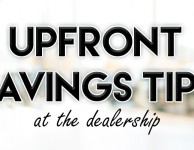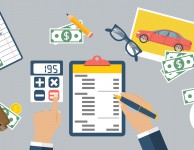How to Avoid Buying a Lemon
When someone refers to a car as a lemon, what they really mean is it was defective or damaged before they purchased it. On the used car market, many buyers worry they’ll wind up with a lemon; as such, most buyers are constantly looking for ways to negate that possibility. Unfortunately, some used car dealers have little or no compunction about misleading potential buyers and will lie about a car’s history if they sense a deal.
To help potential automobile owners considering the purchase of a used vehicle, below is a list of tips to help avoid the risk of buying a lemon.
- Hire a mechanic you trust to look over the car and inspect the body for any signs of crash damage that might have been repaired. New paint jobs over uneven sections of the car are one sign of disguised damage.
- Inspect the inner workings of the car or get a trusted mechanic to do so. At minimum, check the vitals: oil, brake and transmission fluid and the air filter to give you an idea of the last time the vehicle was maintained.
- Take the car for a test drive. If the dealer does not allow you to test out the car, be wary. Drive the car as you would normally (within the confines of traffic regulations, of course!).
- Check the car’s accident history by asking the dealer for a CarFax or AutoCheck Auto History Report, or pay to get your own, which is about $30. All reported accident information regarding the car will be available. The one drawback to these services is that any unreported damage won’t be listed, which is why it’s important to inspect and test drive the vehicle.
- If possible, check the car’s Event Data Recorder (EDR). The EDR is similar in function to a Flight Data Recorder found in a commercial airplane or a Locomotive Event Recorder found on trains. EDR’s were originally created to determine the driving conditions when airbags were deployed to assist car manufacturers in assessing and fixing faulty airbags.
The technology in an EDR, however, has progressed to such a point that some cars have long term records of all instances in which the airbag was deployed and the conditions of the car at deployment. This information can be incredibly useful for used car dealers when they purchase used cars and for buyers who purchase from those dealers. The information can be extracted via a Crash Data Retrieval (CDR) tool, which also accesses the Airbag Control Module (ACM).
While EDR information is not available in all situations, ask a dealer before purchasing a used car. For more information on buying used cars safely, or to look at a variety used car options, contact us at DriveTime.com.







Buying a used car can be risky. But it doesn’t have to be! These tips are a great start, but finding a reputable dealer has to be the top priority.
Definitely get the car fax, but don’t get the car fax from the dealer. Get them directly from their website. Some dealers are known to fabricate this information…even larger ones that you would think, “how do they get away with that?” ….surprisingly some of them still do so be careful.